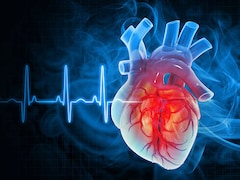Here are 7 essential principles of psychological first aid.

All You Need To Know About Psychological First Aid
When a crisis hits; whether it's a natural disaster, accident, or personal trauma, emotional wounds often run as deep as physical ones. That's where Psychological First Aid (PFA) comes in. According to the World Health Organisation (WHO), PFA is a humane, supportive, and practical approach to helping individuals in the aftermath of distressing events. It is not professional counselling, but a vital early response to reduce initial distress and foster short and long-term adaptive functioning. It empowers not just healthcare providers but also laypersons to offer immediate psychological support when needed most.
Understanding psychological first aid
PFA is designed to stabilise emotions, offer comfort, and support recovery in people affected by traumatic situations. It promotes safety, calmness, and hope, and ensures access to further help if needed. Here are 7 essential principles of psychological first aid.
1. Ensure safety first
Before approaching someone in distress, ensure the area is safe for both the affected person and yourself. Whether at the site of an accident or a natural disaster, physical safety must be the priority. The WHO recommends avoiding overwhelming environments and moving individuals to a quieter, secure location if possible.
2. Be calm and approachable
Your attitude can influence the affected person's emotional state. Speak slowly and clearly, maintain a calm tone, and offer a reassuring presence. The International Federation of Red Cross and Red Crescent Societies (IFRC) stresses that active listening and non-verbal cues such as eye contact and nodding are key.
3. Listen without pressuring to talk
Offer a listening ear but do not push anyone to share more than they want to. Silence is okay. Let them speak at their own pace. Avoid judgment or assumptions. According to WHO's psychological first aid guidelines, simply being there in a compassionate way can make a huge difference.
4. Offer practical help
Help with basic needs; water, food, medical assistance, or locating loved ones. Small, practical tasks can significantly ease anxiety. Your goal is not to fix everything but to support them with what is manageable and necessary in the moment.
5. Connect them with reliable services
If further assistance is needed; such as shelter, legal aid, or mental health services, provide accurate information and help connect them. The United Nations High Commissioner for Refugees (UNHCR) notes that linking people to support systems prevents long-term psychological consequences.
6. Respect privacy and dignity
Do not force help or invade personal space. Respect the individual's wishes, confidentiality, and personal boundaries. This is especially important for survivors of abuse or violence, where retraumatisation can easily occur if care is not respectful and gentle.
7. Promote hope and resilience
Gently remind individuals that most people recover over time with proper support. Highlight their strengths and past coping strategies. The WHO advises reinforcing community and family connections, which are crucial protective factors in trauma recovery.
Psychological First Aid can be delivered by anyone who is trained to care and respond thoughtfully during emergencies; teachers, neighbours, volunteers, or colleagues. It plays a critical role in reducing the mental health burden after crises. Sometimes, the right words and presence can be the first step toward healing.
Disclaimer: This content including advice provides generic information only. It is in no way a substitute for a qualified medical opinion. Always consult a specialist or your own doctor for more information. NDTV does not claim responsibility for this information.
DoctorNDTV is the one stop site for all your health needs providing the most credible health information, health news and tips with expert advice on healthy living, diet plans, informative videos etc. You can get the most relevant and accurate info you need about health problems like diabetes, cancer, pregnancy, HIV and AIDS, weight loss and many other lifestyle diseases. We have a panel of over 350 experts who help us develop content by giving their valuable inputs and bringing to us the latest in the world of healthcare.














